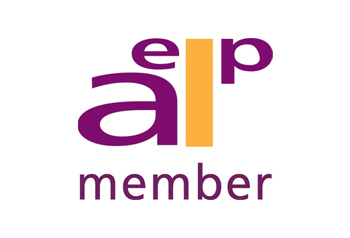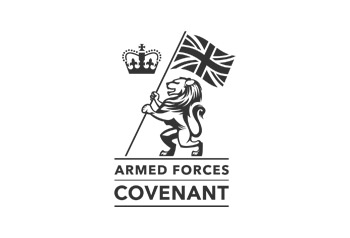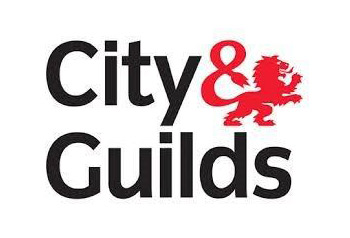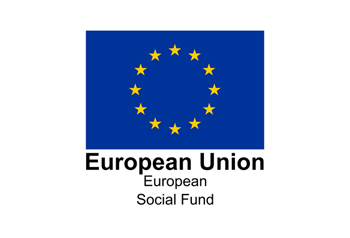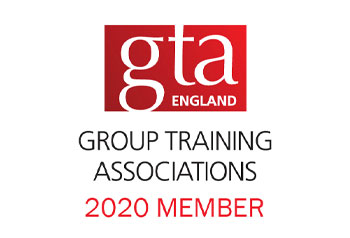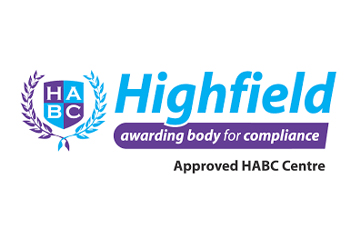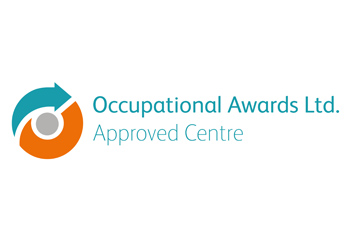Safeguarding & PREVENT
What is Safeguarding?
Safeguarding is a term used in the United Kingdom and Ireland to denote measures to protect the health, well-being and human rights of individuals, which allow people — especially children, young people and vulnerable adults — to live free from abuse, harm and neglect.
What is PREVENT?
Prevent is about safeguarding and supporting vulnerable individuals to radicalisation. Prevent is 1 of the 4 elements of CONTEST, the Government’s counter-terrorism strategy. It aims to stop people becoming terrorists or supporting terrorism.
How does WEBS Training support Safeguarding & PREVENT?
Safeguarding learners is an integral part of WEBS’s policies and procedures in order to provide a safe and welcoming environment in which all individual are respected equally. WEBS Training Limited is committed to ensuring that our apprentices are safe and protected from all forms of abuse, neglect and radicalisation.
We recognise our responsibility to respond appropriately and, with respect to our apprentices, to work with other agencies to ensure the safety and wellbeing of those groups with whom we have contact and to have clear guidelines for our procedures.
- We believe children and vulnerable adults should be valued, safe and happy. We want to make sure that these people we have contact with know this and are empowered to tell us if they are suffering harm.
- We want children, young people and vulnerable adults who use or have contact with this organisation to enjoy what we have to offer in safety.
- We want employers and outside agencies to support our apprentices in times of need in a way that promotes their health and wellbeing and keeps them safe.
- We want organisations that work with or commission work from us, or who provide funding to us, to have confidence and recognise that we are a safe organisation.
- We will achieve this by having an effective safeguarding children and vulnerable adults procedure and following the national guidance in ‘What To Do If You’re Worried A Child Is Being Abused’, or the ‘Protection of Vulnerable Adults’ Act.
- If we discover or suspect an apprentice is suffering harm, abuse or subject to radicalisation we will notify the appropriate authorities.
- Our Safeguarding Children and Vulnerable Adults Policy Statement and our Safeguarding Children and Vulnerable Adults Procedure applies to all staff, volunteers and users of Webs Training Limited and anyone carrying out any work for us or using our premises.
All Board, staff members, volunteers, learners and other users will be made aware of systems within WEBS which support safeguarding including radicalisation and these will be explained to them as part of staff /learner induction.
WHO are the WEBS Safeguarding Officers?
WEBS have appointed a Designated Safeguarding Lead and three Designated Safeguarding Officers who will be responsible for the above, and will also be the person to whom any safeguarding children concerns will, in the first instance, be reported to and who will then discuss and agree the appropriate action to take.
WEBS Designated Safeguarding Officers are:
- Lorraine Jameson = l.jameson@webstraining.com
- James Woolley = j.woolley@webstraining.com
All can be contacted at 01159 677771
WEBS PREVENT Lead is:
- Sharon Hearst = s.hearst@webstraining.com
WEBS Board Lead for Safeguarding and Prevent is:
- Nick Crowther
These days, it's impossible to separate online life from the rest of what we do. Texts, online chat, email, photos, videos or posts on social networks are all used by bullies.
Bullying can affect anyone of any age or background but there are things that you can do to help the situation if you find that you or a loved one are affected by it.
Top five tips
|
1. Ignore it |
Bullies are looking for a reaction. Don't give them the satisfaction of retaliating. Remember, if you lash out, you may be the one accused of cyber bullying. |
|
2. Block it |
If you are using a social network, 'unfriend' or block the account the abuse is coming from. Keep a close eye on your privacy settings to make sure you're not sharing with people you don't want to. |
|
3. Offload it |
There is always somewhere to turn. The sooner you can speak to somebody you trust, the better. If you feel that you have no-one to turn to there are several organisations that you can contact - see the 'Support and advice' box for details. |
|
4. Record it |
Keep emails or text messages and take screen grabs of the offending messages. This will help if you decide to report the cyber bullying. |
|
5. Report it |
Most social networks have a way of reporting offensive posts. |
What is 'sexting'?
- This new form of courtship brings a new set of temptations. According to a NSPCC/ChildLine poll, 6 out of 10 teenagers say they have been asked for sexual images or videos. The sending or receiving of sexually explicit images, videos or texts is known as 'sexting'.
- Many young girls feel pressurised into sending explicit images of themselves without understanding the consequences. Some young women may feel pressure to have sex, so for some of them they think sending this type of photo puts the breaks on a physical relationship.
- Once an explicit image has been sent it is no longer in their control. The image may end up on what is known as a 'parasite website'. Such sites hold explicit images and videos from all over the internet - usually without the original sender's knowledge.
- Once an explicit image is online it could tarnish a young person's reputation for years to come and potential employers could view the images, long after the individual has left school.
- Under British law it is legal to have sex aged 16, but it is illegal and a serious criminal offence to take, hold or share "indecent" photos of anyone aged under 18.
Protect yourself from online abuse
- There are things that you can do to make you less vulnerable to bullying
- Never give out any personal information such as passwords to anyone, even a close friend, boyfriend or girlfriend.
- Don't give in to pressure from others to spread rumours. No one likes to be the subject of malicious gossip, so don't fuel the flames.
- Finally, be aware that others may not see the 'funny side' of what you share online - especially if it's about them. Even if you take a comment, picture or video down later it might already have been shared with others.
- Mobile apps and social networks are great ways to keep in touch with friends and family. By being thoughtful about what we share and showing respect for others we can all enjoy the benefits of being connected.
Radicalisation
- Radicalisation is defined as the process by which people come to support terrorism and violent extremism and, in some cases, to then participate in terrorist groups.
- There is no obvious profile of a person likely to become involved in extremism or a single indicator of when a person might move to adopt violence in support of extremist ideas. The process of radicalisation is different for every individual and can take place over an extended period or within a very short time frame.
- Children and young people can be drawn into violence or they can be exposed to the messages of extremist groups by many means. These can include through the influence of family members or friends and/or direct contact with extremist groups and organisations or, increasingly, through the internet. This can put a young person at risk of being drawn into criminal activity and has the potential to cause Significant Harm.
Potential indicators include:
- Use of inappropriate language
- Possession of violent extremist literature
- Behavioural changes
- The expression of extremist views
- Advocating violent actions and means
- Association with known extremists
- Seeking to recruit others to an extremist ideology
- If you have any concerns you can speak to any member of staff who will listen without judgement and help guide and support you fully.Tutors undertake safeguarding training and have been trained on how to deal with this and other on line issues.
Derby and Nottingham are friendly, exciting destination cities with lots of places for young people to enjoy themselves ~ whether you are interested in fashion, shopping, music, eating out, cinema, or theatre there’s something for everyone! It’s a great place to be whether you’re working, or socialising. To make sure you have the best time and keep yourself safe while out and about, here are some safety tips.
- General Safety
- Try to stay in bright, well-lit busy areas when out at night
- Appear and act confident - look like you know where you’re going and walk tall. Concentrate on where you are going, not on your mobile phone or gadgets.
- When out walking, be careful not to make your personal items an easy target for robbers. Try to keep them hidden.
- Smartphones can be utilised for personal safety. Apps such as bSafe, Life360 or Send Help allow you to track and locate family member, send a text message alert when in danger, securely store the voice, location, and timestamps of any incidents that occur to assist police and prosecution. PanicGuard is a personal safety smartphone application that achieved ACPO ‘Secured by Design’ accreditation.
- Transport
- Plan your route.
- Try to wait in busy or well-lit areas.
- Make sure you have enough money to get home or to the place you are staying. Put your bus or taxi fare in a safe place so you know it’s there when you need it. If you’re out late, check where the nearest taxi rank is or keep a note of a reliable taxi service to contact in case of emergency. If you’re travelling by taxi check out travelling-safety-advice-taxi-alone
- If you are catching the bus, make sure you know the bus times and where the bus stop is ~ give yourself plenty of time to get there.
- Try to travel with friends and let someone know when you are leaving to go back home and the time you expect to be back.
- Sit near other people, near the driver if you are on a bus or near the guard if you are on a train.
- If someone makes you feel uncomfortable, get up and move away.
- Take extra care at crowded bus stops and on crowded buses and trains. Keep your bag closed and make sure your pockets are not accessible.
- Alcohol/Drugs
Some places (for example pubs, music venues, off licences) allow children and young people under the age of 18, at certain times. If you visit a place where alcohol is on sale, the staff are trained to ask young customers for ‘proof of age’. Don’t be offended if they ask for your ID, they are doing it to keep you safe and make sure you, or they don’t break the law by selling you alcohol. If you wish to obtain a recognised type of ID card, look for one with the ‘PASS’ logo on (for example the Citizencard). You can download an application from for a Citizencard from https://www.citizencard.com/apply-for-a-uk-id-card-online
If you’re going to a 14+ event (maybe a gig or a club) you could be asked to take an alcohol breath test or a security search – this is to make sure that people entering the premises are not taking drugs or weapons in there and that they haven’t been drinking so that people in the venue can enjoy themselves and be safe.
Remember, it’s illegal for people under 18 to buy alcohol or drink it in licensed premises. If you’re 16 or over and having a meal with an adult there are some drinks you can have providing the adult you are with buys them for you with the meal.
If you are not comfortable about the way someone is behaving in a venue, speak to a member of staff. Most places train their staff to look out for their customers to make sure everything is ok and people are having a good time and they will know how to help if you need it
Trust your instincts
Try to avoid walking alone at night in places such as parks and side streets or any unfamiliar environment. If you do have to walk, stick to busy places where is a lot of activity CCTV and good lighting.
In case of an emergency
- Always ensure your mobile if charged up when you go out
- Always let a responsible adult know where you are going, who you are with and leave a phone number with them.
- Make sure your mobile phone has the contact details of your parent or carer, so that they can be easily contacted in case of emergency. If you add ICE (in case of emergency) next to their name in your phone book, the emergency services know to contact them if necessary.
- If you are lost or need help ask a Street Pastor who patrol the city centre and help to make sure the city is safe for everyone. They’re there to help and listen, responding to the problems of crime and safety.
- If you can, try to buy a personal alarm
- If you think you are in danger, contact the police on 999 and ask for help.
Market research
- Taking part in market research can be fun, but if your parent or carer has not signed a consent form for you to take part in the research, it’s important to make sure the person asking you to participate is registered with an approved organisation.
- Ask them to show you their ID card and look for the ‘MRS’ (Market Research Society) logo. Check that the photograph matches the person holding the ID card.
- It’s also safer to do things with friends, so avoid participating on your own – go with a friend, and let your parent or carer know what you are doing – give them a quick ring to tell them what you’re doing and to check it’s okay.
Where to go for more information?
Nottinghamshire Police personal safety


